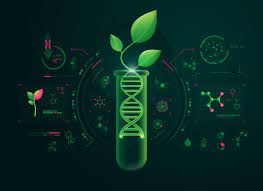Introduction
Genetic modification, often called genetic engineering, is one of the most groundbreaking scientific advancements of the modern era. It involves altering the genetic makeup of organisms plants, animals, or micro-organisms to achieve desired traits such as disease resistance, improved yield, or enhanced nutritional value. While this technology has revolutionized industries like agriculture and medicine, it also raises important ethical and environmental questions.
Explore the science of genetic modification. how it works, its benefits in agriculture and medicine, and the ethical debates surrounding the use of genetically modified organisms (GMOs).
What Is Genetic Modification?
Genetic modification (GM) refers to the direct manipulation of an organism’s DNA using modern biotechnology. Scientists can add, remove, or modify genes to change how the organism develops or functions.
This process is different from traditional breeding because it allows specific genes to be transferred between unrelated species something nature cannot do on its own. For example, a gene that makes a plant resistant to pests can be inserted into another crop to improve its productivity.
How Genetic Modification Works
The process of genetic modification typically involves the following steps:
-
Identifying the target gene: Scientists locate a specific gene responsible for a desired trait.
-
Isolating the gene: The gene is extracted using molecular tools.
-
Inserting the gene: The new gene is introduced into the target organism’s DNA.
-
Selection and testing: The modified organism is grown and tested to confirm successful gene expression.
Common tools used include CRISPR-Cas9, gene cloning, and recombinant DNA technology.
Applications of Genetic Modification
1. Agriculture
Genetically modified (GM) crops are among the most widespread uses of this technology. Farmers cultivate GM crops like maize, soybeans, and cotton that are engineered for:
-
Pest and disease resistance
-
Drought tolerance
-
Higher yield and nutritional quality
-
Reduced use of chemical pesticides
2. Medicine and Health
In healthcare, genetic modification is used to:
-
Produce insulin, vaccines, and other life-saving drugs
-
Develop gene therapy to correct defective genes
-
Create genetically modified animals for medical research
3. Environmental Protection
Some GM organisms are designed to clean up pollution (bioremediation) or reduce agricultural waste, supporting sustainable environmental practices.
Benefits of Genetic Modification
-
Increased food production to meet global demand
-
Enhanced nutritional value of crops (e.g., Vitamin A-rich “Golden Rice”)
-
Reduced chemical usage in farming
-
Advances in medicine through new treatments and vaccines
-
Improved resistance to pests, diseases, and harsh climates
Ethical and Environmental Concerns
Despite its benefits, genetic modification remains controversial. Critics argue that it raises:
-
Ethical issues about “playing God” and altering natural life forms
-
Health concerns about potential allergenicity or long-term effects
-
Environmental risks like loss of biodiversity and crossbreeding with wild species
-
Economic inequalities, as large biotech companies control patents and seeds
Many countries enforce strict regulations and labeling requirements for genetically modified foods to ensure consumer safety and informed choice.
Conclusion
Genetic modification has the power to transform our world, feeding the hungry, curing diseases, and protecting the environment. However, it must be guided by ethical principles, transparency, and regulation. The debate surrounding GMOs is not just about science it’s about how we, as a global community, choose to shape the future of life itself.

